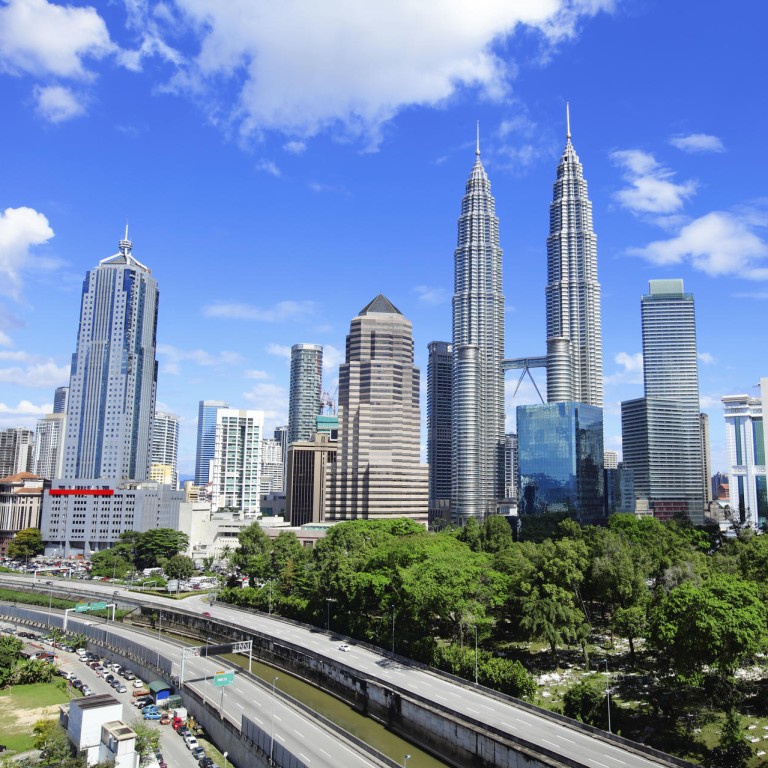
Trade deals provide welcome boost for Malaysian economy
Establishment of Asean Community and Trans-Pacific Partnership will help exports. Reports byRichard Warren
Malaysia's economy will be boosted by two large trade deals, analysts say. Greater economic integration between the 10- members of the Association of Southeast Asian Nations (Asean) was agreed last month, while another initiative that will help the country's exporters - the Trans-Pacific Partnership (TPP) - was signed in October.
At its summit last month in Kuala Lumpur, Asean's rotating chair Malaysia's Prime Minister Najib Razak announced the Asean Community would be established on December 31. Intra-Asean trade has been liberalised over the years, with tariffs removed, and the creation of this single market that will encompass major regional economies such as Thailand, Indonesia and the Philippines will ease this process further.
Malaysian exporters, already benefiting from a weak ringgit, will gain from the country joining TPP. The deal, which opens up trade between 12 Pacific-Rim countries, including Singapore, the United States and Vietnam, was completed after seven years of negotiations.
According to HSBC analysts, a wide range of Malaysian exporters will find it easier to sell inside and outside Asean following the TPP announcement.
"Think electronics, rubber and palm oil exports. The chemical sector should also receive a boost," says Su Sian Lim, an economist at HSBC.
Malaysia accounts for 44 per cent of worldwide palm oil exports, with companies such as Sime Darby among the top producers.
While traditional industries such as rubber and palm oil continue to be important contributors to GDP, the country has diversified its economy since the 1970s, with electronic products, such as semi-conductors, making up one-third of the nation's exports.
The TPP agreement follows a 4.1 per cent jump in exports over the 12 months to August 2015, the Malaysian government reports. With imports falling, the country's trade surplus widened to 10.19 billion ringgit (HK$18.5 billion). Increased sales of palm oil and electronic goods more than counter-balanced declining demand for petroleum oil and other mining products.
Exports to China, Malaysia's largest trading partner, leapt 32.4 per cent year-over-year.
Exports overall have been aided by the weak ringgit, which hit a 17-year low against the US dollar earlier this year. The Malaysian currency had depreciated in value by nearly a third against the dollar in the 12 months to November, falling from 3.34 ringgit to US$1 to 4.26 ringgit to US$1.
Malaysia's tourism industry has also benefited from the fall in the ringgit. As the country's second largest foreign currency earner, tourism contributes 5.7 per cent of national GDP. The country has attracted leading luxury hotel chains, such as Mandarin Oriental, which has premises in Kuala Lumpur, and more hotels are being built across the country.
According to Thai stockbroker, Maybank Kim Eng, Malaysian casino operators such as GENM and GENT - with US and British operations generating income in dollars and pounds - will benefit from the ringgit's decline. Another group of beneficiaries were the country's glove-makers whose revenue was almost entirely in US dollars compared to only half their costs, the brokerage said.
While economic diversification, a weak ringgit and new trade deals are good news for Malaysian businesses, the government has taken additional steps to protect the economy against the global commodities slump and other international challenges, principally easing Chinese demand, the effects of changing monetary policy in the US and possible future financial crises.
In October, Kuala Lumpur announced plans to inject 20 billion ringgit into key sectors of the economy via its ValueCap investment fund, which was set up in 2002 to support shares in firms affected by the 1998 Asian currency crisis. Among other smaller measures announced by the government, the tourism industry would receive a 80 million ringgit cheque for promotional campaigns in Asean, China and India.
In addition, Kuala Lumpur granted visa exemptions for Chinese tourists from October 1 to March 31. Several tourist destinations will be developed or upgraded, including the capital's KL Sentral shopping centre, where connections with the city's other visitor attractions, such as Perdana Lake Gardens, will be improved.
Another beneficiary of increased spending is the Domestic Investment Strategic Fund, which was set up in 2012 to help companies transform themselves into higher value-added, hi-tech, knowledge-based industries.
However, Lim says the new measures will have a "limited" impact overall. "Aside from the ValueCap injection, the measures aren't exactly 'big bang' and target the supply rather than demand side of the economy," she says. "The measures are not enough to change our view that growth will slow to 4.6 per cent this year from 6 per cent in 2014, and to 3.6 per cent in 2016."
Lim is concerned the government's increased use of public funds to stimulate the economy might undermine efforts to narrow the fiscal deficit, which the authorities forecast will fall to 3.2 per cent of GDP in 2015 from 3.4 per cent last year.
"We remain wary of fiscal slippage," Lim says, "while the ValueCap injection will not come from the budget, it is hard to get a definitive grip on how much the measures will cost the government in aggregate, and over what time period."
Malaysia's finances will be given a boost by China, which announced last month that it would buy Malaysian government bonds and provide the country with a 50 billion yuan (HK$60.5 billion) quota for purchasing Chinese stocks and bonds under its Renminbi Qualified Foreign Institutional Investors plan.
Kuala Lumpur's focus on building up economic resilience in 2015 will continue next year, according to the finance ministry's Economic Report 2015/16, which stated the 2016 budget would help ordinary Malaysians cope with a challenging international environment with a series of "peoples" initiatives, including cash handouts for low-income households, raising the minimum wage, higher income tax rates for high earners and new investment in various industrial sectors.
